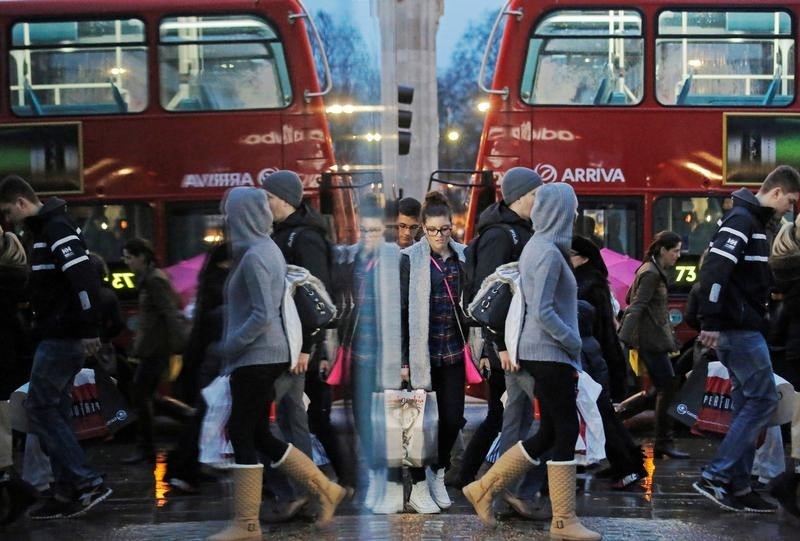LONDON (Reuters) - British inflation slipped in April for the first time since September last year, reflecting a drop in airfares after a March surge around the Easter holidays disappeared, as well as lower clothing prices.
Consumer prices rose 0.3 percent compared with a year ago, the Office for National Statistics said, in line with a Bank of England estimate last week but below economists' expectation for inflation to remain at 0.5 percent.
British inflation has been below the BoE's 2 percent target for more than two years and last year it was zero, the lowest since comparable records began in 1950.
The BoE forecast inflation would stay below 1 percent until the tail end of this year and to undershoot its target until 2018, due to the global slump in oil prices, the effect of past rises in sterling and lackluster wage growth.
Separate ONS figures also released on Tuesday confirmed industry surveys showing a big increase in house prices in the run-up to an extra property purchase tax which took effect in April.
The ONS said house prices in Britain were 9.0 percent higher than a year earlier, the biggest rise in a year. In London - where the new tax will have the biggest effect - prices rose by 13.0 percent.
As well as the drop in airfares, lower prices for women's clothing and a government-mandated reduction in the rents charged for social housing pushed down inflation last month.
An ONS measure of core consumer price inflation -- which strips out changes in the price of energy, food, alcohol and tobacco -- fell to 1.2 percent, compared with economists' expectations for 1.4 percent.
But the dip in consumer price inflation is likely to be short-lived.
Prices charged by manufacturers, which tend to be responsive to changes in energy and raw material prices, fell last month at the slowest annual rate since November 2014.
North Sea oil prices (LCOc1) rose 22 percent last month and have recovered further in May, hitting a six-month high on Monday after slumping around 35 percent in dollar terms in 2015.
Fears that a weakening global economy and sharp stock market falls might sap the strength of Britain's moderate domestic recovery mean few economists expect the BoE to raise rates before early next year.
Many in financial markets think it could take much longer, and see a small chance that the BoE could instead be forced to cut rates below the record-low 0.5 percent where they have languished for almost seven years - especially if Britons vote to leave the European Union in a June 23 referendum.
Expectations among people in Britain for inflation over the coming year rose in April to their highest level since July of last year, according to a YouGov survey published at the end of April.
Two surveys last week suggested British shoppers held off from buying new spring and summer clothes during an unusually cold April, compounding a sense of uncertainty among consumers ahead of the EU referendum.
